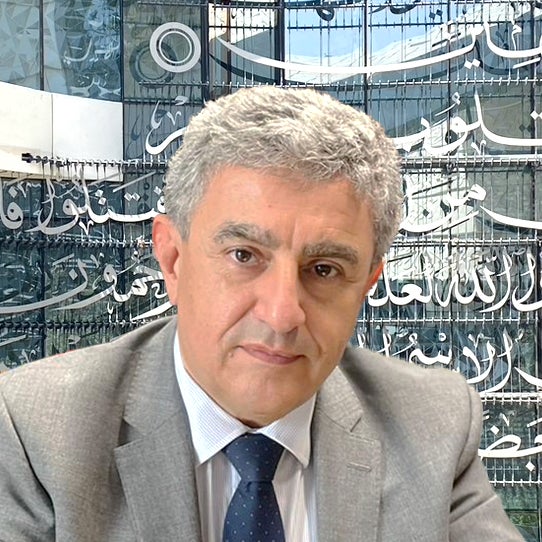
Dr. Sultan Barakat
Professor
Office location
C.03.031
Dr. Sultan Barakat
Professor
Educational Qualifications
Diploma, peacekeeping mediation, and negotiation
PhD in Philosophy
Entity
College of Public Policy
Biography
Sultan Barakat is a Professor at the College of Public Policy at Hamad Bin Khalifa University. He is a renowned scholar in the study of war-torn societies and their recovery. He has supervised over 20 PhDs in politics and post-war recovery and graduated a generation of MA peacebuilders and reconstruction specialists. Professor Barakat founded and directed the Center for Conflict and Humanitarian Studies at the Doha Institute from 2016 to 2022 and previously led the post-war reconstruction unit at the University of York from 1993 to 2019.
He has published extensively, with recent books including Russia’s Approach to Post-Conflict Reconstruction and Shelter and Reconstruction after War and Disaster, both released in 2023. With over 30 years of experience, Barakat has worked on conflict management, humanitarian response, and post-conflict recovery, influencing global practices through his publications and advisory roles with organizations like the UN, World Bank, and EU.
He has led evaluations and peace initiatives in various conflict zones, demonstrating his commitment to stability and resilience. His involvement in mediation efforts in Yemen, Syria, and Afghanistan highlights his contributions to peacebuilding. Barakat continues to shape discourse in conflict resolution, earning recognition as a leading authority in the field.
Diploma, peacekeeping mediation, and negotiation
The Lester B. Pearson Canadian International Peacekeeping Center, Canada
1995
PhD in Philosophy
University of York, England
1993
Diploma, Disaster Management Certificate
Oxford Polytechnic, England
1989
MA in Urban Conservation
University of York, England
1989
BSc in Architectural Engineering
University of Jordan, Jordan
1988
- Mediation and conflict resolution
- Localization and the humanitarian-development-peace nexus
- Post-conflict reconstruction
- Post-war recovery of cultural heritage
Professor
College of Public Policy, Hamad Bin Khalifa University
2022 - Present
Professor and Founding Director
Centre for Conflict and Humanitarian Studies, Doha Institute for Graduate Studies
2016 - 2022
Professor, Special Advisor and University Vice-chancellor
Department of Politics and International Relations, University of York, England
2014 - 2019
Senior Fellow
Brookings Doha Center, The Brookings Institution, Washington D.C), United States
2014 - 2016
Barakat, S. (2023). Shelter and reconstruction after war and disasters (Arabic ed.). Doha: Hamad Bin Khalifa University Press. ISBN 978-9-927-16412-5.
Barakat, S. (2023). Russia’s approach to post-conflict reconstruction. London: Palgrave Macmillan. ISBN 978-3-031-34521-0.
Barakat, S, et al. (2014). The influence of state building research on British policy in fragile states. London: Ashgate. ISBN 978-1-4724-2757-1.
Barakat, S. (Ed.). (2008). Reconstructing post-Saddam Iraq. New York: Routledge. ISBN 978-1-1367-6371-7.
Barakat, S. (Ed.). (2005). After the conflict: Reconstruction and development in the aftermath of war (2nd ed., republished 2010). London: I.B. Tauris. ISBN 978-1-8488-5417-8.
- 2024; Fellow of the Geneva center of humanitarian studies at the University of Geneva.
- 2022; Senior associate fellow of the Royal United Services Institute (RUSI).
- 2019; Honorary professor at the University of York.
- 2019; Fellow of the Economists for peace and security.
- Advisory board member of the Humanitarian policy group at the Overseas Development Institute in London.
